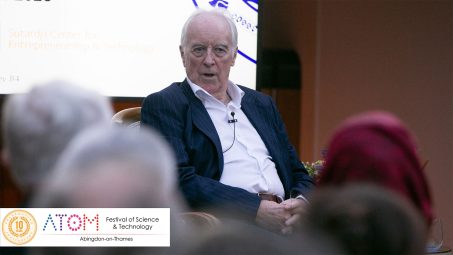
Pandora Papers: Is blockchain technology the solution to financial fraud?
As revelations from the Pandora Papers continue to explode, a financial expert says things of this nature will occur until blockchain technology is more widely implemented.
Faisal Sheikh, Lecturer in Accounting and Finance at the University of Salford Business School does research specialising in accounting fraud and Blockchain Technology.
He said: “Pandora Papers is a leak of approximately 12 million documents that lifts the lid on hidden wealth, tax avoidance and, in some instances, money laundering by some of the world’s uber rich and powerful.
“This situation will continue until Blockchain Technology (BCT) becomes an accepted financial measure, just like double-entry bookkeeping. BCT is a system of recording information in a manner that makes it very difficult if not impossible to alter, hack or defraud the system.
“A blockchain is basically a digital ledger of transactions that is replicated and shared across the whole of the network of IT systems on the blockchain. Each block in the chain comprises transactions, and each time a fresh transaction takes place on the blockchain, a record of that transaction is simply added to every stakeholder’s or participants ledger or record.
“The beauty of BCT is that is it creates a transparent, decentralised and therefore, a trust-less system which is visible to every participant in the blockchain.
“It uses a decentralized network, where each participant or node is required to authenticate alterations, making it highly secure and reliable. Thus, allowing global regulators to peruse records and act with a high level of assurance. It comprises of an immutable ledger that records confirmed identities of those behind every single electronic transaction which can act as a huge deterrent to money laundering. As it would provide conclusive proof in a court of law of a person or company ‘s participation or wrongdoing.
“Detecting money laundering through BCT would be predicated on smart contracts that are programs warehoused on a blockchain that run when pre-set conditions are met. They are “usually used to automate the execution of an agreement/contract so that all participants can be immediately certain of the outcome, without any intermediary’s interference for example money transfer. Hence, a BCT AML platform that used smart contracts would be able to utilise integrated algorithms to automate the process of AML fraud detection.
“By programming inbuilt requirements, such as the need for authenticated ID, this technology would be able to immediately block or red flag any suspicious transactions.
“It is high time that global governments treated the annual money laundering problem, worth an estimated $2 Trillion, on par with climate change and force organisations to adopt BCTs. Otherwise there will be continued leaks which will become a toxic flood and there will a vicious fight to get a seat on ‘Noah’s Financial Ark’.”
More in Education

Stephen Clarke: Leading the Way at the ATOM Festival of Science...
Stephen Clarke, our Principal at Cherwell College Oxford, is not only a distinguished leader and former British diplomat, but also a passionate advocate for science and education. As the Chairman of ATOM Festival of Science & Technology, Stephen plays a pivotal role in bringing world-class scientific discussions and innovations to the heart of Abingdon. Stephen’s leadership ensures that the festival remains dynamic, inclusive, and engaging for people of all ages.

The Story Museum: Bringing Stories to Life in Magical Ways
The Story Museum is no ordinary museum. Nestled in the heart of Oxford, this unique, immersive space is dedicated to celebrating the power of storytelling in all its forms. Whether through interactive exhibitions, live performances, or creative workshops, The Story Museum is on a mission to enrich lives—especially young lives—through the magic of stories.

Unleash Your Potential: AI & Innovation Summer Camp at Cherwell College...
In an ever-evolving world where innovation drives progress, equipping oneself with cutting-edge skills becomes paramount. Cherwell College Oxford proudly presents its AI & Innovation Summer Camp, a transformative journey designed to empower young minds with the tools and insights needed to thrive in the digital age. Here’s why this programme is a must for aspiring innovators:
From this author

Pioneering planning scheme shortlisted for economic growth award
An exciting planning project in the Vale of White Horse has been recognised by being shortlisted for an industry award.

Pioneering Careys Construction Campus to be piloted at Oxford North
Oxford North, the new £700 million innovation district in Oxford, is to welcome Careys Construction Campus to provide free, flexible on-site ground working construction training which will guarantee an offer of an interview on completion of the training and boost jobs and talent in the industry.

Projects at Nicholsons
Nicholsons has built a strong reputation for delivering exceptional landscaping and forestry projects across a diverse range of clients. From small private domestic gardens to large-scale commercial developments, the company continues to push the boundaries of creativity and sustainability in landscape design.


